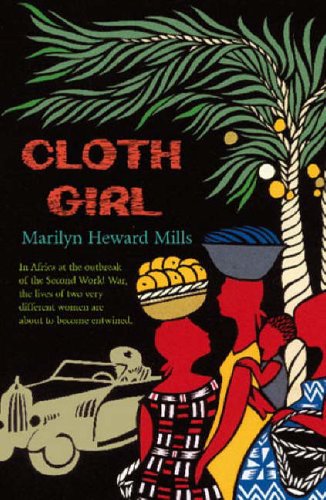Cloth Girl
In the mid-1930s, naïve bride Audrey Turton travels to Ghana to join her colonial officer husband. At the same time, fourteen-year-old Matilda becomes the second wife of Robert Bannerman, a Cambridge-educated black lawyer. It is only when the two women’s lives become intertwined that either is able to come to terms with her changed circumstances.
In this long and leisurely paced debut novel, Marilyn Heward Mills vividly recreates colonial Ghana in the years leading up to independence, contrasting the vibrant life of the Ghanaians with the suffocating formality of the colonial social round – club, cricket, Christmas pantomimes. Though Matilda comes from a large, traditional family, whose women dress in the bright cotton robes, or cloths, which give the book its title, her marriage to Robert removes her to a world which straddles these two, and the abiding enmity of Julie, Robert’s first wife, a black woman educated in England and presented at Court, who has abandoned traditional dress to become a “frock girl”.
Matilda is deeply rooted in her background, and Mills dwells lovingly on the rich rituals of traditional cooking and dress-making, as well as Ghanaian ceremonies such as the door knocking betrothal ceremony and the outdooring of new babies. Matilda establishes her place in Robert’s heart by cooking for him, in contrast to Julie, whose western aspirations have removed her from the kitchen. But in spite of her pride in her identity, Matilda only finds true happiness in love with a white colonial administrator, and liberation from emotional dependence on a man through her friendship with Audrey, who teaches her English. Audrey, in turn, learns self-reliance from Matilda’s example in carving out a place for herself in Robert’s home.
Though slow to get started, this is a charming, optimistic tale of two women emancipating themselves against the background of a country emerging from colonial domination.










